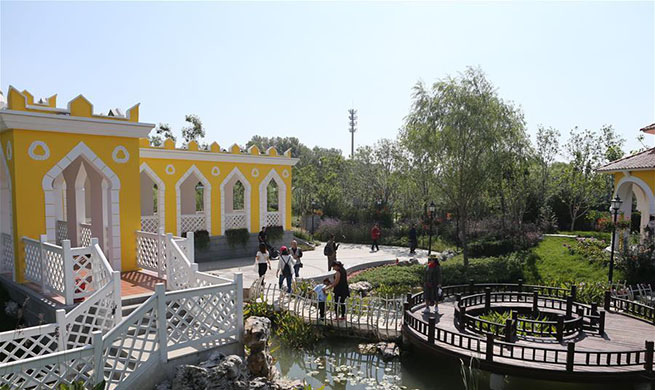BEIJING, Sept. 23 (Xinhua) -- Chinese researchers have found that the traditional Chinese Laba garlic has three types of active peptides that can destroy bacteria, suggesting they might be a promising alternative to antibiotics.
Laba garlic, a vinegar-preserved green and slightly spicy dish, is usually prepared on the 8th day of the 12th Chinese lunar month, the Laba Festival in China.
According to researchers from China's Tianjin University, the three active peptides in Laba garlic can form pores on the surface of bacteria, destroy their membranes and cause leakage of cellular content inside, inhibiting the growth of bacteria like E. coli and S. aureus.
The findings have been reported in the journal Food & Function.
The researchers said the active peptides in Laba garlic have high antibacterial activity with low toxicity, providing a theoretical basis for further development of natural antimicrobial peptides drugs.
Peptides are a group of compounds called "chemical messengers" in animals and plants, regulating a range of life functions like growth, metabolism and fertility.

















